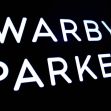The 10th U.S. Circuit Court of Appeals ruled on Thursday that Bank of America's (BofA) use of the name "Erica" for its virtual banking assistant does not infringe on the rights of a website creator who owned an earlier trademark for "Erica."
The case involved plaintiff Erik Underwood, who developed a business plan in 2009 for a virtual assistant named E.R.I.C.A. and subsequently registered a Georgia trademark for the name in 2010. Underwood later utilized the trademark for his website, my24erica.com, which functions as a search engine for film and actor information.
Bank of America, on the other hand, registered a federal trademark for "Erica" in 2018, specifically for "voice-controlled information and personal assistant devices" used in banking services. Since its launch, BofA has reported that its Erica virtual assistant has been accessed over 2 billion times, highlighting its widespread adoption and utility.
The legal conflict began when Underwood sued BofA in Colorado federal court, claiming that the bank’s use of the name "Erica" violated his trademark rights. The district court initially ruled in favor of Bank of America in 2019, a decision that was briefly revisited in 2021 when the 10th Circuit remanded the case to consider whether Underwood had a protectable interest in his trademark prior to BofA’s usage of the "Erica" name. Upon reconsideration, U.S. District Judge Raymond Moore ruled again for the bank in 2022.
Affirming Judge Moore's decision, U.S. Circuit Judge Nancy Moritz wrote for a three-judge panel, stating that Underwood "presented no evidence that the E.R.I.C.A. mark, as used on the website, clearly distinguishes the source of the services offered by my24erica.com." The panel concluded that Underwood’s trademark was not protectable under the circumstances, as it did not adequately indicate the source of his services in a way that would be recognized by consumers.
Under U.S. trademark law, a trademark's protectability hinges significantly on its distinctiveness and its ability to clearly indicate the source of the goods or services to consumers. This principle was central to the decision in the trademark dispute between Erik Underwood and Bank of America regarding the "Erica" virtual assistant.
A trademark essentially serves as a source identifier for consumers, helping them distinguish between different goods and services in the marketplace. For a trademark to be protectable, it must be distinctive. This means it must be recognizable by consumers as a symbol that denotes a single source or origin of the product or service. The distinctiveness of a trademark can be inherent based on its uniqueness or acquired through extensive use in commerce that leads to consumer recognition.
There are generally five categories of trademark distinctiveness in U.S. law:
- Fanciful or Arbitrary: These are inherently distinctive and offer the strongest protection. Fanciful trademarks are made-up words with no other meaning than serving as a brand (e.g., "Kodak"), while arbitrary trademarks are real words used in a context that does not relate to their normal meaning (e.g., "Apple" for computers).
- Suggestive: These require imagination to connect the mark with the product and are also highly protectable (e.g., "Netflix" for a streaming service).
- Descriptive: These directly describe a feature or attribute of the product and are not initially protectable unless they acquire distinctiveness through secondary meaning—meaning that consumers have come to recognize them as denoting a particular source over time (e.g., "Sharp" for televisions).
- Generic: These are common terms for products or services and can never be trademarked (e.g., "Bicycle" for a two-wheeled vehicle).
In Underwood v. Bank of America, the appellate court found that Underwood’s use of "E.R.I.C.A." did not meet the necessary threshold for distinctiveness. The panel concluded that there was insufficient evidence to show that the mark clearly distinguished the source of the services provided on Underwood's website, my24erica.com. As a result, his trademark was deemed not protectable under the circumstances.






